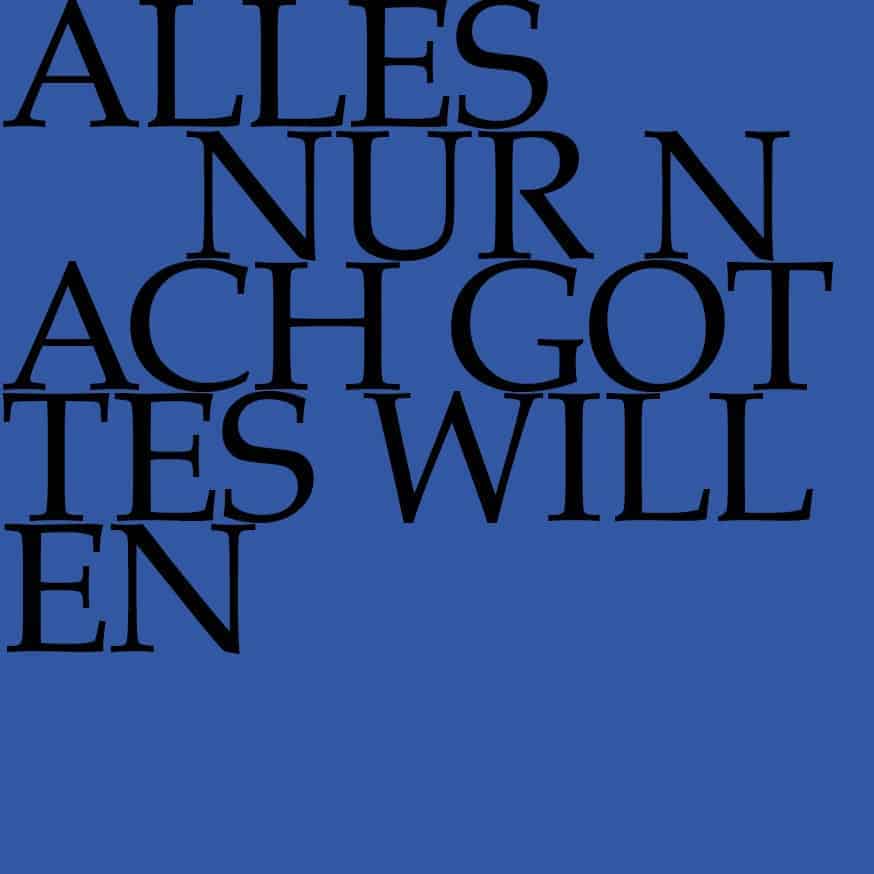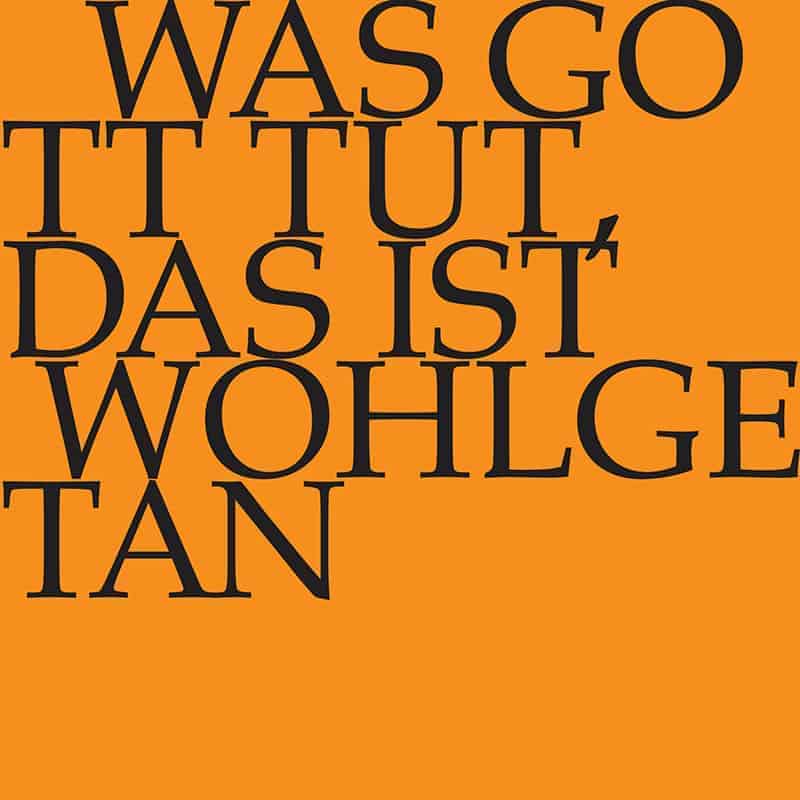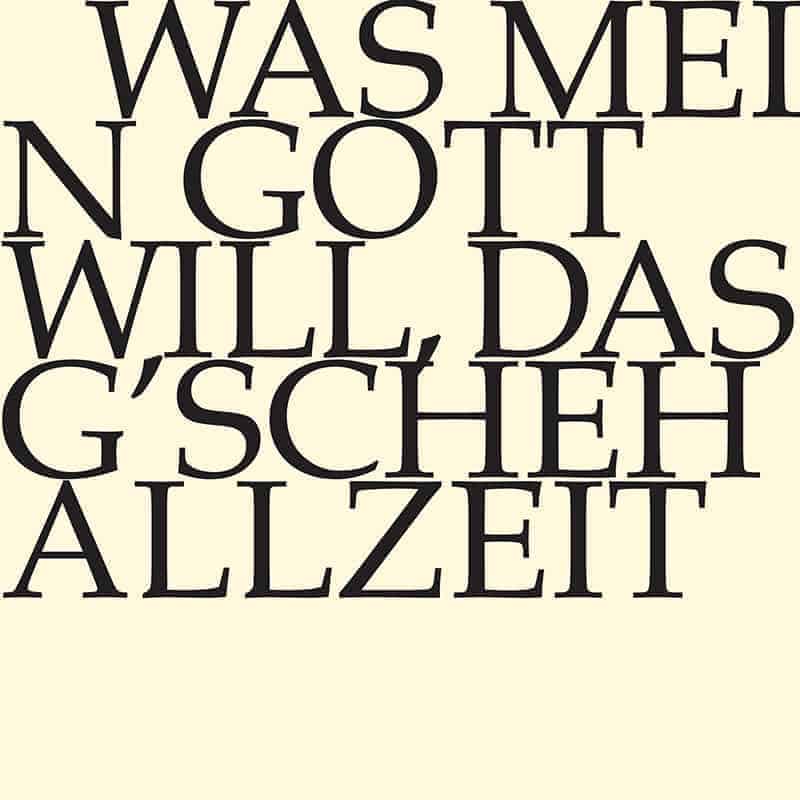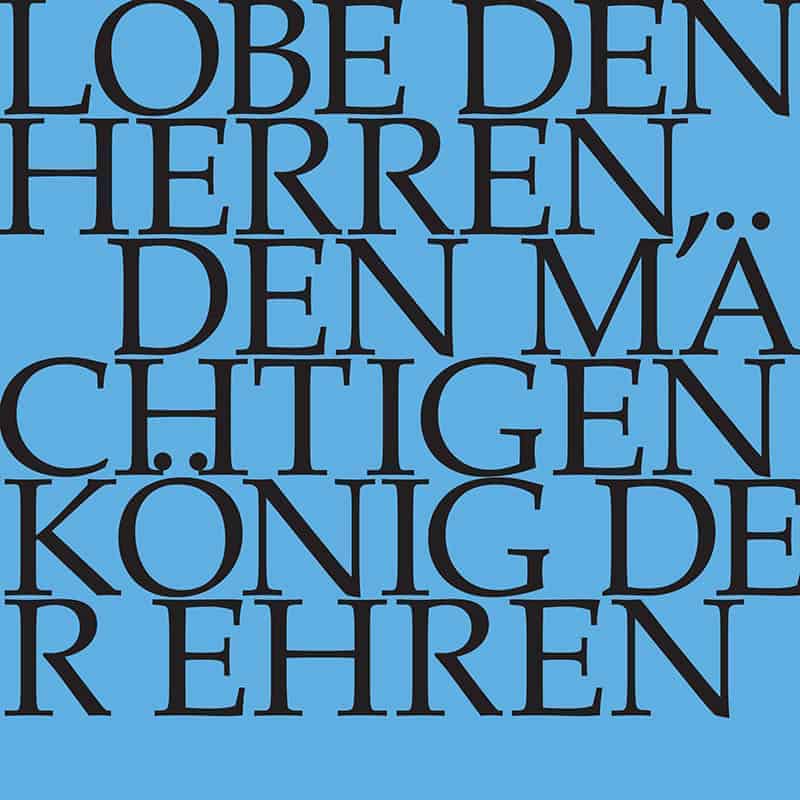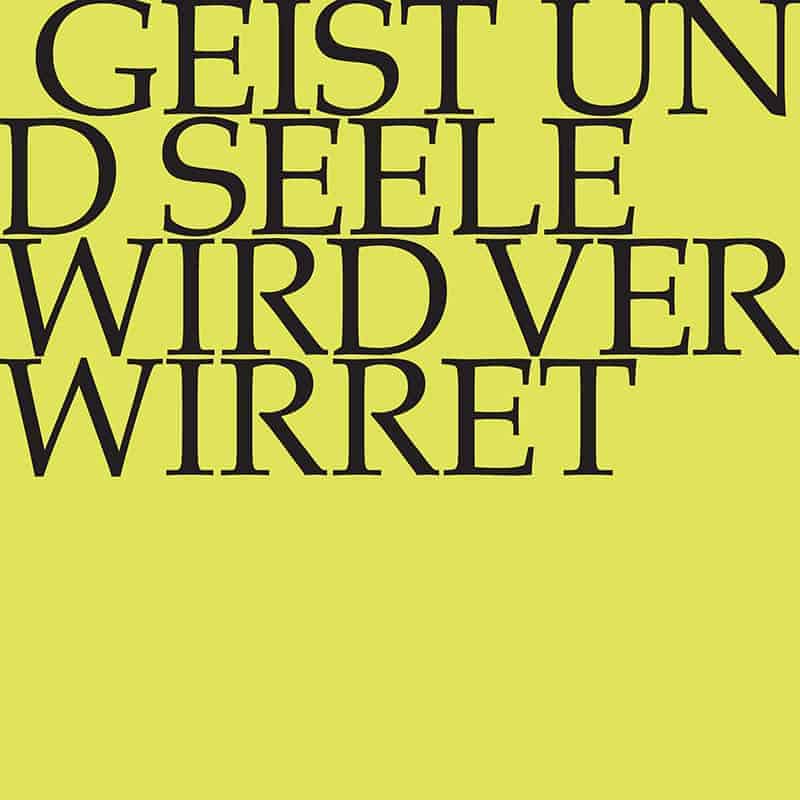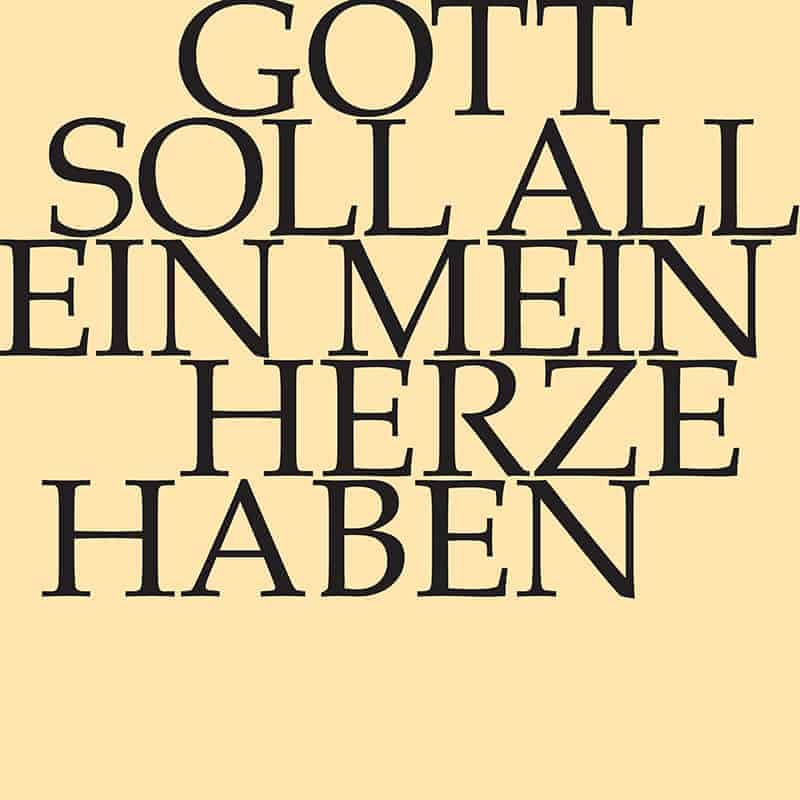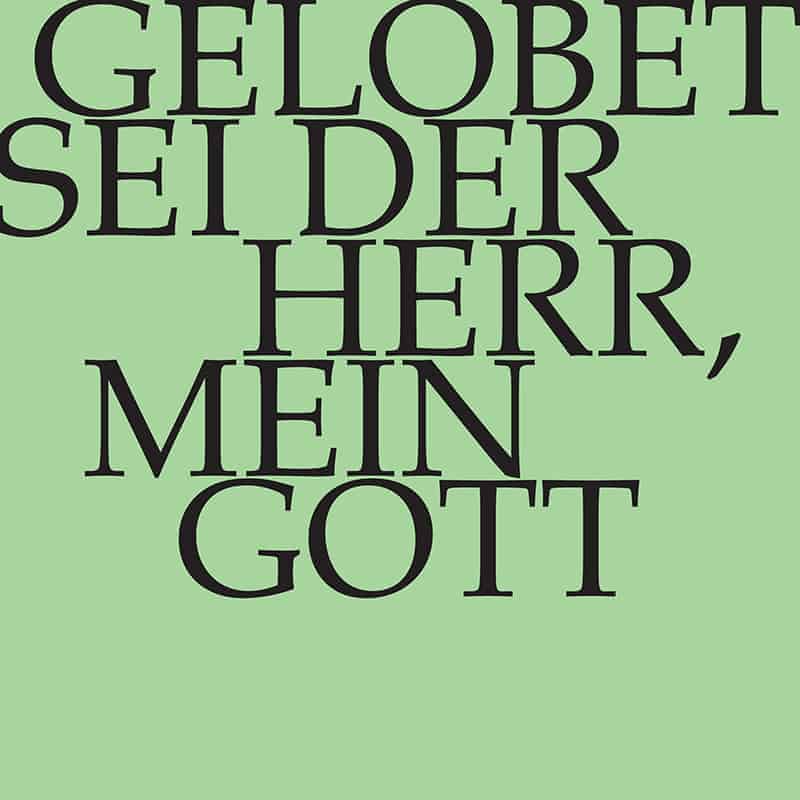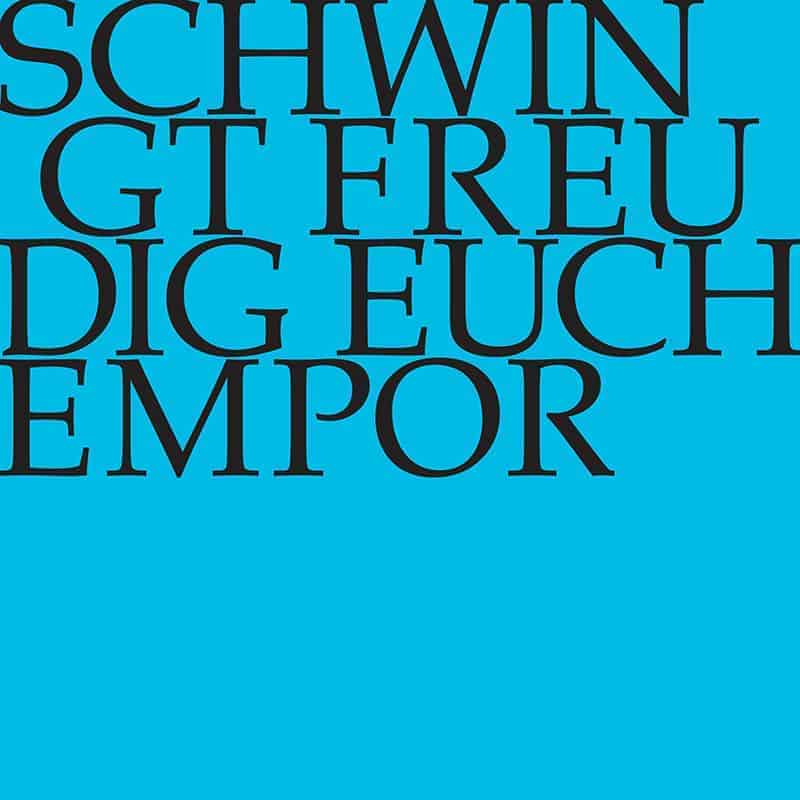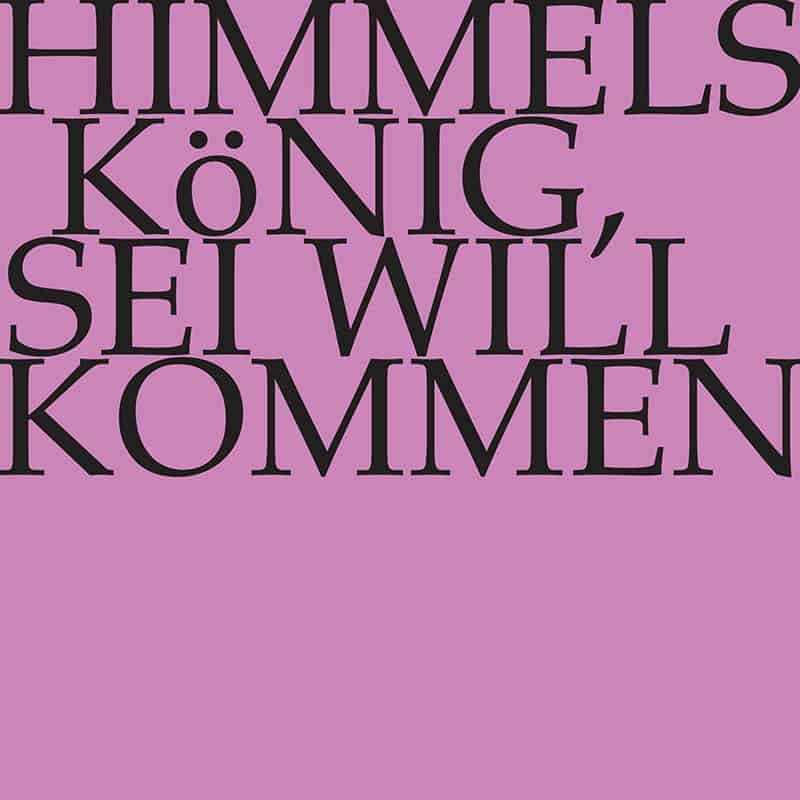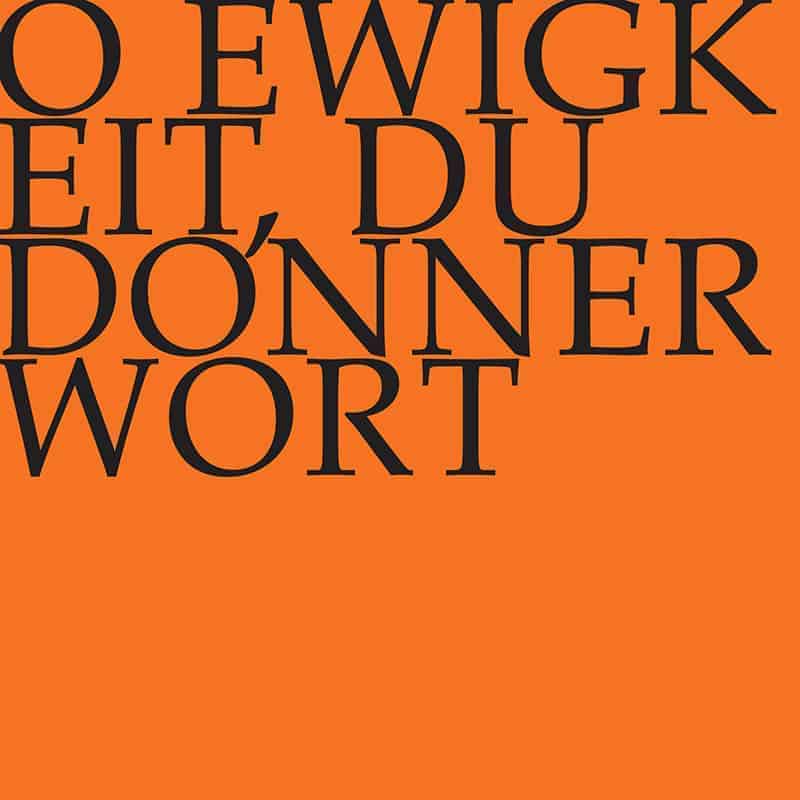(All things but as God is willing) for soprano, alto and bass, vocal ensemble, oboe I+II, strings and basso continuo
Archives
Was Gott tut, das ist wohlgetan
(What God doth, that is rightly done) for soprano, alto, tenor and bass, vocal ensemble, horn, transverse flute, oboe d‘amore, strings and continuo Written for 17 September 1724, BWV 99 belongs to the substantial chorale cantata cycle of 1724/25, and is one of three cantatas all beginning with the same hymn. While it may be … Read More
Was mein Gott will, das g’scheh allzeit
(What my God will, be done alway) for soprano, alto, tenor and bass, vocal ensemble, oboe I+II, bassoon, strings and continuo The cantata “Was mein Gott will, das g’scheh allzeit” (What my God will be done always) was composed for the Third Sunday after Epiphany in 1725. With its sustained thematic treatment of the chorale … Read More
Lobe den Herren, den mächtigen König der Ehren
(Praise the Lord, the mighty King of honour) for soprano, alto, tenor and bass, vocal ensemble, trumpet I–III, timpani, oboe I+II, strings and continuo
Geist und Seele wird verwirret
(Soul with spirit is bewildered) for alto, oboe I+II, oboe da caccia, bassoon, organo obbligato, strings and continuo. Bach’s alto cantata “Geist und Seele wird verwirret” (Soul with spirit is bewildered) BWV 35, composed for the Twelfth Sunday after Trinity, belongs to Bach’s most unusual sacred works. Composed to a libretto by the Darmstadt court … Read More
Gott soll allein mein Herze haben
(God all alone my heart shall master) for alto, vocal ensemble (chorale), oboe I+II, taille, strings and continuo. Like many church works of Bach’s 1726/27 cycle, cantata BWV 169 was conceived as a solo cantata (with a four-voice closing chorale), suggesting both a shift in Bach’s compositional focus and the availability of capable soloists in … Read More
Gelobet sei der Herr, mein Gott
(Give honour to the Lord, my God) for soprano, alto and bass, vocal ensemble, trumpets I-III, timpani, flute, oboe I+II, bassoon, strings and continuo. In his cantata “Gelobt sei der Herr, mein Gott” (Give honour to the Lord, my God) BWV 129 Bach presents a celebratory work of great magnificence and yet extraordinary efficiency. Written … Read More
Schwingt freudig euch empor
(Soar joyfully aloft) for soprano, alto, tenor and bass, vocal ensemble, oboe d’amore I+II, bassoon, strings and continuo. Cantata BWV 36, “Schwingt freudig euch empor!” (Soar joyfully aloft), is a work of clarity and elegance that seems especially well-suited to the preparatory period of Advent – a time that, while not yet festive, still seems … Read More
Himmelskönig, sei willkommen
(King of heaven, thou art welcome) for alto, tenor and bass, vocal ensemble, recorder, strings and continuo. The cantata “Himmelskönig, sei willkommen” (King of heaven, thou art welcome) BWV 182, written for Palm Sunday in 1714, was Bach’s first composition following his appointment as Konzertmeister at the ducal court of Weimar. Based on a specification … Read More
O Ewigkeit, du Donnerwort
(Eternity, thou thundrous word) for soprano, alto, tenor, bass, oboe, oboe d‘amore I+II, strings and continuo. When composing the cantata “O Ewigkeit, du Donnerwort” (Eternity, thou thunderous word) BWV 60, Bach was faced with a particularly interesting challenge. In contrast to the chorale cantata BWV 20 which also begins with the same church hymn, this … Read More


